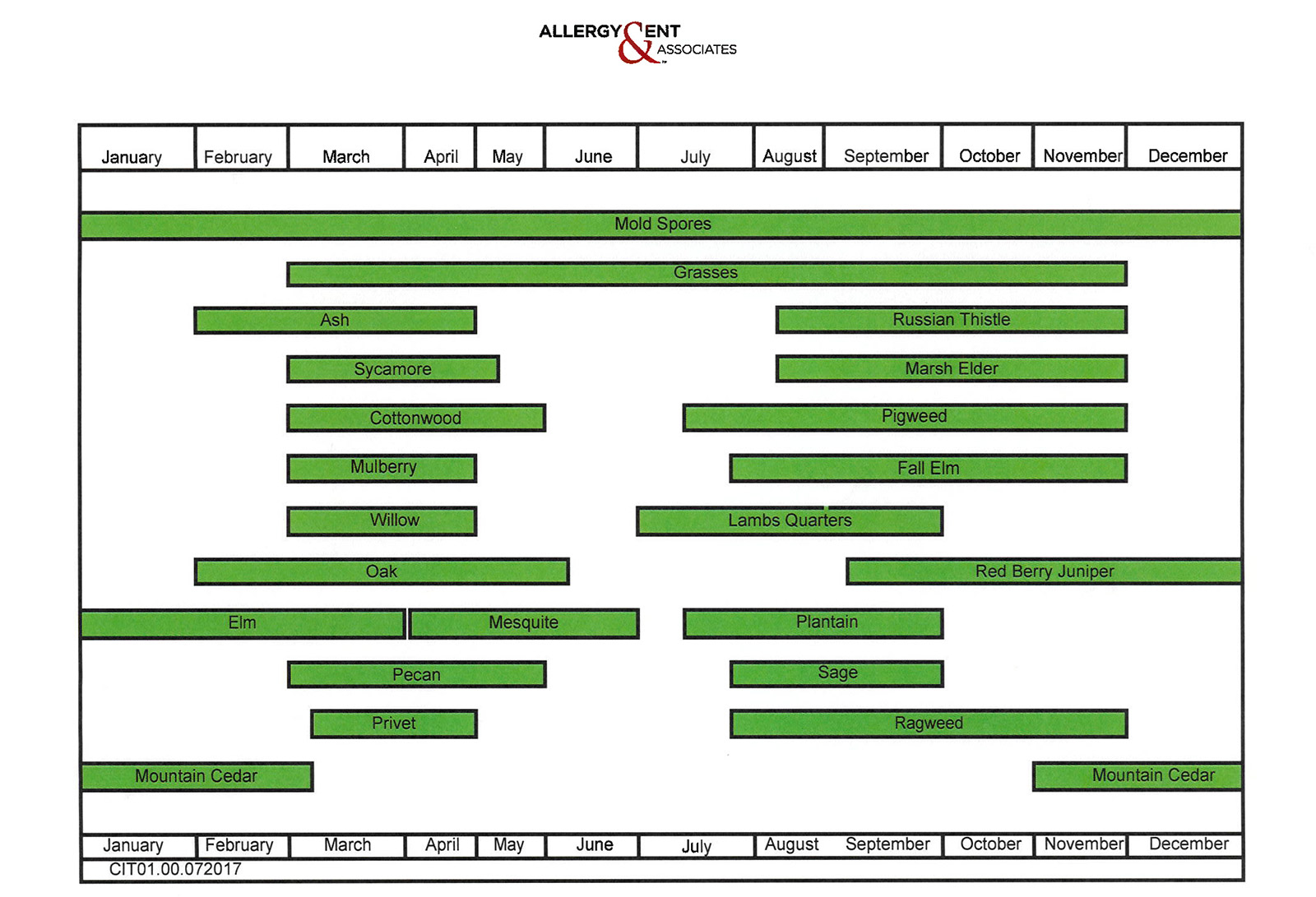Tree Pollen Springs Into Action
Spring is in the air, and it’s not alone. With the onset of warmer temperatures come the onslaught of allergy-inducing pollens and the misery they bring to those who suffer from seasonal allergies. Sometimes referred to as hay fever although it’s neither caused by hay nor is fever a symptom – seasonal allergic rhinitis is the body’s reaction to airborne pollens released by plants each spring and fall.
In the process of wafting through the air to find similar plants to fertilize, these microscopic culprits end up in the nose and throats of allergy/asthma sufferers, triggering an outbreak of sneezing, congestion, runny nose and itchiness in the eyes, nose and throat. Asthmatics may experience tightness in the chest, a hacking cough and difficulty breathing.
Trees are the earliest pollen producers, springing into action as early as January each year to kick off the spring allergy season. While pollination periods vary by regions, the pollinating season for specific types of trees is constant from year to year within each region. Rain and temperatures may affect the amount of pollen produced each year, but not the beginning or end of a tree’s pollen season.
The first step in minimizing spring suffering is to determine which trees you have a sensitivity to. Your board-certified allergist/immunologist can help you identify the offending allergens. Local area pollen counts can then be used to help reduce exposure.
Pollen counts in the Houston area are typically measured through a device known as a ‘rotorod sampler.’ At regular intervals this outdoor-mounted device spins, collecting pollen on greased plastic rods and measuring the allergen count per cubic meter of air.
Houston-area pollen counts provided by the City of Houston Health Department measure eight local tree pollens. These trees, their pollination periods and peak pollen counts are as follows:
Media reports describe pollen counts as being low, moderate or high. It’s important to interpret that count relative to your location. In the Houston area, low tree pollen counts are from zero to 15, moderate from 16 to 90, high counts from 91 to 1500, and very high counts those above 1501.
Many people blame their allergy symptoms on the yellow pollen that you see in the spring. This is pine pollen but it is not very allergenic. Pine pollen is very heavy so it falls to the ground very quickly. However, when the pine is pollinating other trees such as oak, ash and elm are also pollinating. It is these other trees with very small and light pollen that you don’t see that are the worse offenders.
To enjoy the spring temperatures and outdoor activities, keep in mind these helpful tips for reducing your tree pollen exposure:
- Minimize outdoor activity in the morning between 5:00 and 10:00 a.m., when pollen levels are at their highest, or on rainy, cloudy or windless days when pollen is dispersed slowly.
- Keep car windows closed while driving.
- Avoid lawn mowing and leaf raking which stir up pollens.
- Keep windows closed at home to prevent airborne pollens from coming indoors. Finally, your board-certified allergist/immunologist can help you determine appropriate treatments. For temporary relief, antihistamines, decongestants and steroid nose sprays are available by prescription to reduce or alleviate allergy symptoms. For long-term relief, allergy shots or immunotherapy – where extracts of the offending allergen are injected in small doses and gradually increased to reduce sensitivity – remain the only effective option.
For up-to-date information on local and national grass pollen counts follow the links at the bottom of our Home page.
Contact for Appointment
If you would like more information or to schedule an appointment please call our central appointment desk (713) My-Sinus or (713) 697-4687 and schedule an appointment with one of our specialists.



